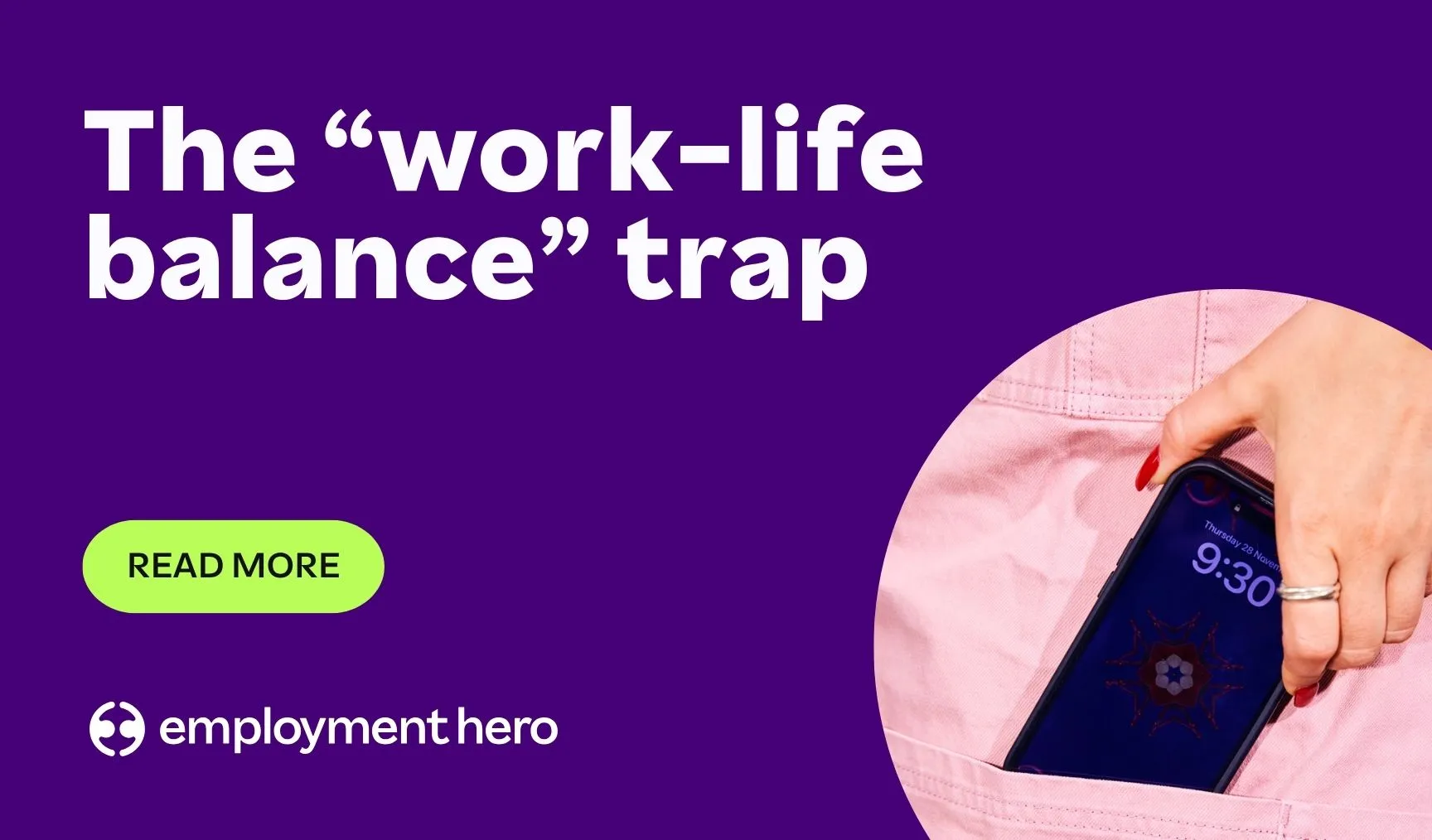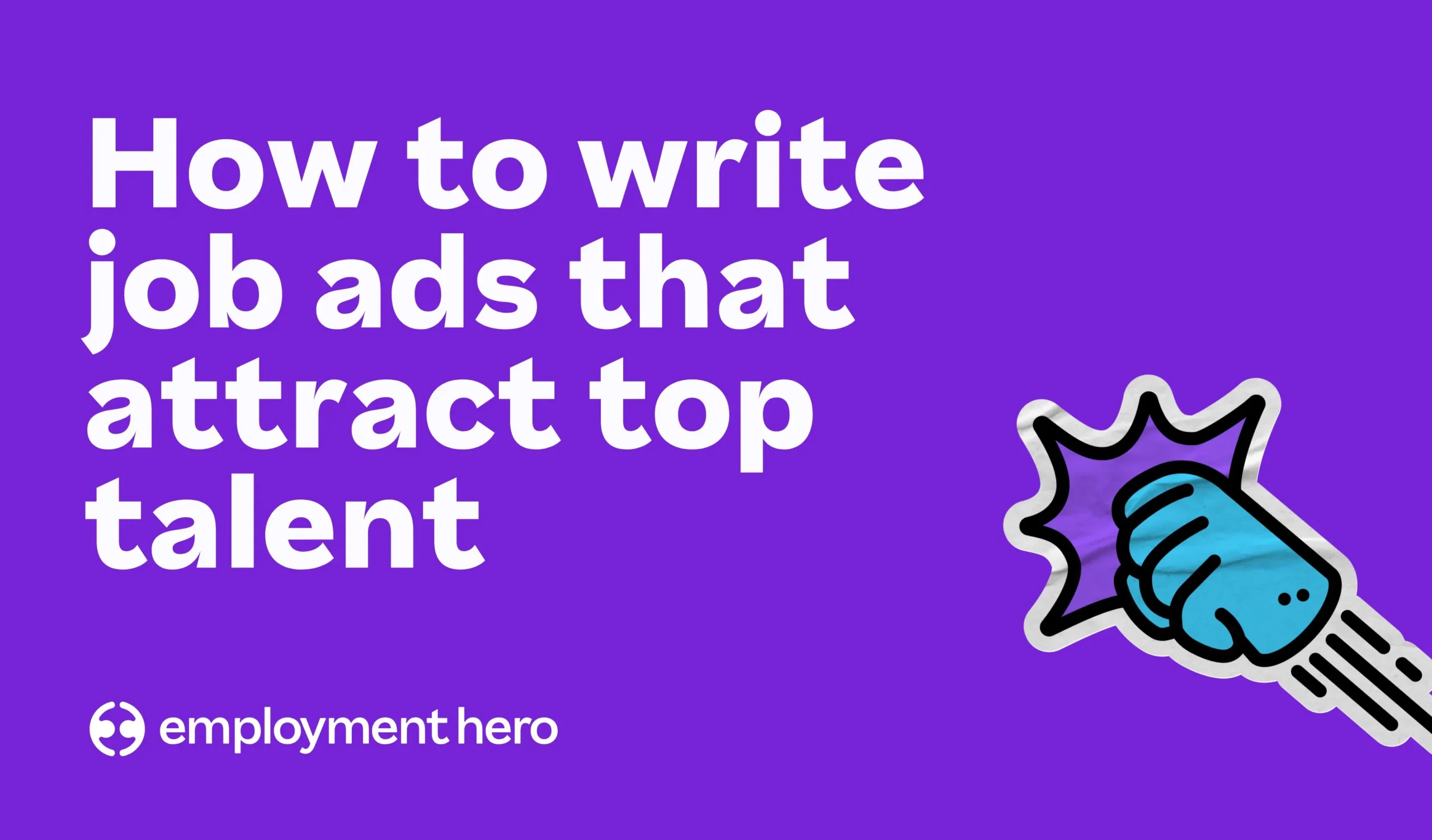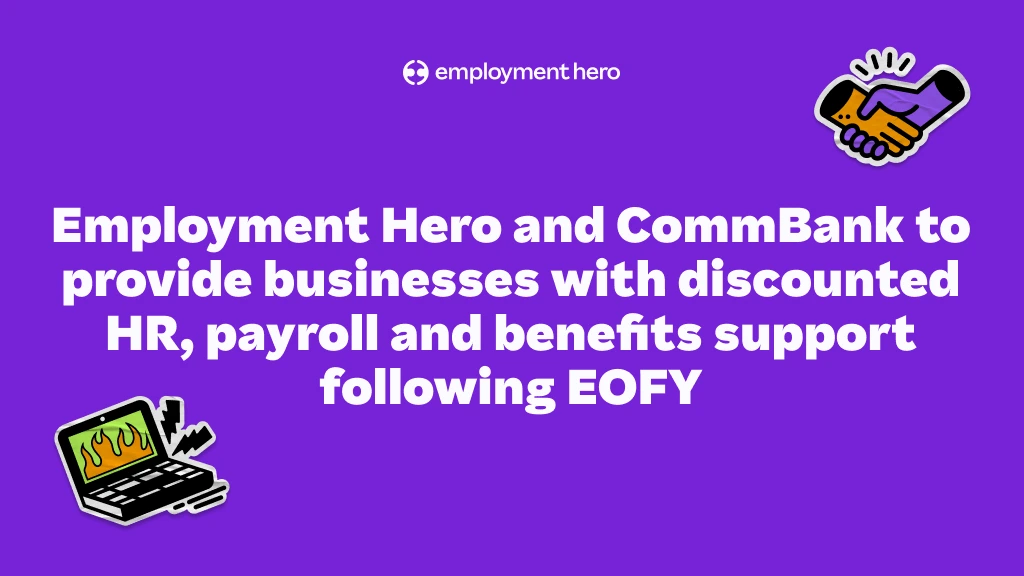Award Interpretation: Are Changes to Modern Awards Giving You A Headache?
With the updated Fair Work Act in place, there have been a lot of questions about the changes to modern awards and how they will impact businesses. Here is what you need to know.

One thing that typically frustrates employers in small businesses is the frequency of updates to regulations that govern employing and paying people.
Just when you think you’re up-to-date, along come new award provisions, minimum shift rulings, or other entitlements, and you need to go through the award interpretation process with a fine-tooth comb.
Award interpretation is complex, but it’s essential to get it right. You need to apply all the right pay rules into payroll in order to trigger correct pay for your employees.
Get it wrong, and you could be facing the reputational damage that goes with underpaying employees along with hefty penalties. Businesses can face fines up to $63,000 per breach. For individuals, it’s up to $12,600 per breach.
You need to get award interpretation right
When it comes to compliance, there’s a lot to get right. Under modern awards, your employees’ remuneration changes based on their age, employee type (part-time, full-time, or casual), or whether they are a trainee or apprentices.
Then there are changes based on time of day, penalty rates for weekends and public holidays, as well as overtime.
You need to factor in tax deductions and changes in superannuation too, and comply to new ATO reporting rules that will apply from 1 July 2018.
Plus, there are other rules for minimum and maximum shifts, leave entitlements, accident pay and various allowances for travel, uniforms or protective gear. With so much to cover, making a mistake is all too easy.
To stay informed on annualised wage changes, particularly for the restaurant and hospitality awards, you can download the relevant factsheet here: Hospitality Awards 2022: Annualised Wage Changes.
Without a modern HRIS and payroll system to automate award interpretation, this task is a decidedly manual process that’s time-consuming and prone to human error.
Read more: Benefits of automating in-house payroll
New award provisions from 1 January 2018
The latest round of updates came into effect on 1 January this year. They provide part-time employees with greater flexibility of rosters and casuals with entitlements to overtime penalty rates. Under the updated provisions, some casuals are now entitled to overtime penalty rates for work they perform over and above 38 hours per week.
Overtime rates for causals
For example, if you’re a retailer and you pay your staff under the retail award, you need to pay adult casual employees 175% of their base hourly award rate for the first three hours they work in excess of nine hours in one day. Then 225% for each hour after that. Overtime on Saturdays and Sunday increases to 225% and to 275% on public holidays.
For businesses operating in the hospitality industry, you need to pay your casual employees 150% of their ordinary hourly rate for the first two hours of overtime they work Monday to Friday.
This jumps to 200% of the employee’s ordinary hourly rate for any additional overtime worked on those days.
On the weekend, specifically between midnight Friday and midnight Sunday, you need to pay casuals 200% of the employee’s ordinary hourly rate. The ordinary hourly rate does not include the 25% casual loading.
Understanding industrial relations is also crucial for ensuring compliance and smooth operations in your business. For an easy-to-understand guide, read An Introduction to Industrial Relations.
Automated award interpretation
The best way to keep on top of the changes and your payroll and policies compliant with the new award pay rates and entitlements is to automate your payroll.
By taking advantage of an HRIS platform and payroll system that has award interpretation smarts built-in, the software eliminates the complexity of interpreting the rules associated with the modern awards.
Payroll with inbuilt award interpretation tools streamlines the process of accounting for total hours worked, penalty rates, specific time periods and special duties in calculating your employees’ pay.
Not only do you save time, but you can be sure that the award rate is applied correctly every time for every staff member, whether they are full-time employees, part-time, or casual.
Full-time employees
Have ongoing employment, working on average, around 38 hours each week.
Part-time employees
Usually, work regular hours each week, but less than 38 hours per week.
Casual employees
Have no guaranteed hours of work, and tend to work irregular hours.
January 2018 award changes
Here’s our summary of how the 1 January 2018 updates affect you. Though for full details of all the changes, please go to the Fair Work Ombudsman’s website.
| Award | |
| Fast Food Award | You now need to pay casual employees overtime when they work more than 38 hours per week, or an average of 38 hours per week over a roster cycle. Or they work more than 11 hours per day. |
| Hair and Beauty Award | You now need to pay casual employees overtime when they work more than 38 hours per week, or an average of 38 hours per week over a roster cycle. Or they work more than 10.5 hours per day. |
| Hospitality Award Part-time employees must work for a minimum of 8 hours and less than 38 ordinary hours per week over a roster cycle. You must agree with your employees on the minimum number of hours to be worked each week, along with their availability. You can roster part-time employees for additional hours during their availability period without it qualifying as overtime. Part-time employees who regularly work additional hours for 12 months can ask to increase their guaranteed hours. | You now need to pay casual employees overtime when they work more than 38 hours per week, or an average of 38 hours per week over a roster cycle (which may not exceed 4 weeks). Or they work more than 12 hours per day. |
| Registered Clubs Award Part-time employees must be engaged for a minimum of 8 hours and less than 38 ordinary hours per week over a roster cycle. You must agree with your employees on the minimum number of hours to be worked each week, along with their availability. You can roster part-time employees for additional hours during their availability period without it qualifying as overtime. Part-time employees who regularly work additional hours for 12 months can ask to increase their guaranteed hours. | You now need to pay casual employees overtime when they work more than 38 hours per week, or an average of 38 hours per week over a roster cycle (which may not exceed 4 weeks). Or they work more than 12 hours per day or shift. They also qualify for a meal allowance when working overtime. |
| Restaurant Award Part-time employees must be engaged for a minimum of 8 hours and less than 38 ordinary hours per week over a roster cycle. You must agree with your employees on the minimum number of hours to be worked each week, along with their availability. You can roster part-time employees for additional hours during their availability period without it qualifying as overtime. Part-time employees who regularly work additional hours for 12 months can ask to increase their guaranteed hours. | You now need to pay casual employees overtime when they work more than 38 hours per week, or an average of 38 hours per week over a roster cycle (which may not exceed 4 weeks). Or they work more than 12 hours per day or shift. They also qualify for a meal allowance when working overtime. |
| Retail Award | You now need to pay casual employees overtime when they work more than 38 hours per week, or an average of 38 hours per week over a roster cycle. Or they work outside of ordinary hours, or more than 11 hours on one day of the week, and more than 9 hours on any other day of the week. |
In addition, there are a number of minor updates to other awards, including:
Passenger Vehicle Award
You can roster school bus drivers transporting students to and from school for 1 or 2 shifts per day. Each shift needs to be a minimum of 2 hours.
Pastoral Award
You can engage junior employees who are 18 years or younger who are full-time secondary school students for just 2 hours.
Wine Award
Likewise, the minimum payment for casual employees doing pruning or harvesting work during unexpected wet weather has been reduced from 4 hours to 2 hours.
Social and Community Services Award
Part-time rosters no longer need to have the same amount of hours in each week. Employees and employers can agree to have a different amount of hours in each week over a roster cycle.
Check out Understanding Australian Payroll: For Accountants, Bookkeepers, and Payroll Providers for a comprehensive guide on navigating payroll legislation in Australia, especially useful for accountants, bookkeepers, and payroll providers.
Changes to award rates and conditions will continue
Make the whole award interpretation process easier on yourself and your business by using an all-in-one HRIS and payroll system like Employment Hero. With built-in award interpretation, you don’t need to be a payroll expert, and you’ll save so much time doing manual calculations. If you are in the hospitality industry, it is crucial to address specific HR issues to prevent disastrous problems. Learn more in: Five HR issues hospitality businesses must prioritise. Read more: Should you hire an accountant?
Request a demo
If you want to see how your business could benefit from using Employment Hero to eliminate the need for manual award interpretation, along with streamlined reporting for the new Single Touch Payroll system, book a payroll demo with the team today.
Not sure whether to choose Employment Hero Payroll or Xero Payroll? Compare the two and decide which is the best fit for your business in Employment Hero Payroll vs Xero Payroll: What’s best for your business?. Employment Hero is Australia’s first all-in-one cloud HRIS offering a comprehensive HR software, payroll system, and employee benefits platform in one easy solution. Trusted by Australian businesses, Employment Hero is about making rostering, onboarding, performance management, time tracking, payroll, and award interpretation a snap. Employment Hero’s HRIS also integrates with Xero, MYOB, KeyPay, and Accountright Live. Stop wasting time with spreadsheets, and request a demo today.
Related Resources
-
 Read more: The ‘work-life balance’ trap: Why promising it is hurting your SME recruitment (and what to promise instead)
Read more: The ‘work-life balance’ trap: Why promising it is hurting your SME recruitment (and what to promise instead)The ‘work-life balance’ trap: Why promising it is hurting your SME recruitment (and what to promise instead)
For growing SMEs, work-life integration is a sustainable way to support your team and attract top talent. Explore how your…
-
 Read more: Job ad guide: How to attract top candidates
Read more: Job ad guide: How to attract top candidatesJob ad guide: How to attract top candidates
Looking to hire your perfect match? The way you pitch your open role can be the difference between landing or…
-
 Read more: Employment Hero and CommBank to provide businesses with discounted HR, payroll and benefits support following EOFY
Read more: Employment Hero and CommBank to provide businesses with discounted HR, payroll and benefits support following EOFYEmployment Hero and CommBank to provide businesses with discounted HR, payroll and benefits support following EOFY
Eligible CommBank Yello for Business customers will get the first 3 months free on any Employment Operating System subscription with…






















